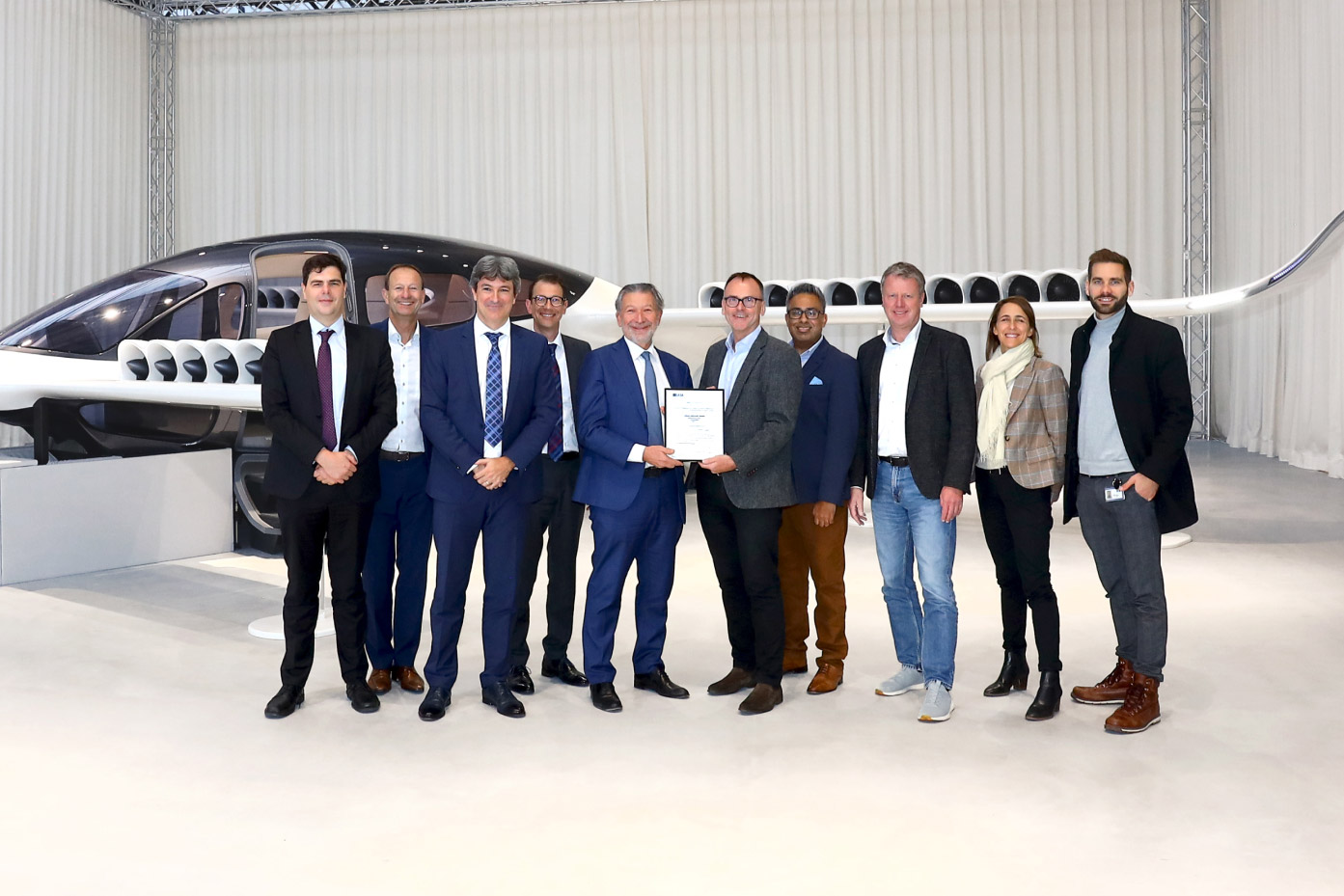Lilium N.V. (NASDAQ: LILM), developer of the first all-electric vertical take-off and landing (“eVTOL”) jet, announced that it has received Design Organization Approval from its primary regulatory authority, the European Union Aviation Safety Agency (“EASA”). The award marks a major milestone for Lilium, positioning it at the forefront of the industry as a company authorized to hold a type-certificate for an eVTOL aircraft in Europe.

Design Organization Approval reflects a seal of quality assurance for companies in aviation design, formally acknowledging a company’s ability to design and develop safe and compliant aircraft. This major achievement in the development of the revolutionary Lilium Jet reflects the culmination of an extensive qualification process dating back to 2017. Receiving Design Organization Approval is a core requirement for any commercial aircraft manufacturer.
Klaus Roewe, Lilium CEO, commented: “In many respects, today’s announcement marks a cornerstone for Lilium and evidences our market leadership in advancing the aviation industry. Achieving Design Organization Approval reflects EASA’s confidence in Lilium and differentiates us against others currently pursuing eVTOL development and regulatory approval. While we join a small, select group of companies qualified to develop commercial aircraft, today’s announcement is especially significant for the global aviation industry as we are doing so by advancing sustainable regional air mobility. I appreciate the many Lilians and countless stakeholders that have played a pivotal role in us achieving today’s milestone, and we look forward to further advancements towards commercialization of the Lilium Jet. I would like to thank our counterparts at EASA for their professional cooperation, which I believe will continue to be very beneficial for the industry moving forward.”
Alastair McIntosh, Lilium Chief Technology Officer and Head of Design Organisation, added: “In simple terms, the Design Organization Approval is our Licence to Operate and confirms that Lilium has the organization, procedures, competencies, resources and demonstrated rigor required to design and certify aircraft according to the very highest safety standards. This pays great tribute to our team at Lilium. Receiving Design Organization Approval from EASA further motivates us on our path to commercialize the revolutionary Lilium Jet.”
Bhavesh Mandalia, Lilium Chief Airworthiness Officer and Deputy CTO, commented: “Today’s announcement has been more than six years in the making. I’d like to thank my fellow Lilians as well as our partners at EASA for their continued support on this journey. In addition to European oversight, EASA’s Design Organization Approval brings significant benefits to our FAA certification process in the U.S. by utilizing the Bilateral Aviation Safety Agreements to validate the technology and aircraft.”
Luc Tytgat, Acting Executive Director, EASA said: “EASA is ensuring that everything is in place for the societal acceptance of Urban Air Mobility. We are setting the right rules for operations and taking care of the environmental elements including noise, while of course ensuring that high safety standards are met. At the same time, we are wary of creating barriers to entering this new market and we have worked in partnership with Lilium, against a demanding timeline. I would like to congratulate Lilium on achieving this Design Organization Approval, which advances Europe’s electric aviation activity.”
According to Lilium’s Design Organization Approval, Lilium is qualified to design and be a type certificate holder for aircraft developed according to EASA’s SC-VTOL rules, the comprehensive set of eVTOL requirements that EASA finalized in 2019 and which represent the highest safety objectives globally for eVTOL aircraft.
Lilium is pursuing concurrent type-certificate validation of the Lilium Jet with the FAA under the provisions of the Bilateral Aviation Safety Agreement between the European Union and the U.S. The FAA issued its G-1 for the Lilium Jet in June, making Lilium the only eVTOL manufacturer with both an EASA and FAA certification basis for a powered lift eVTOL aircraft.

